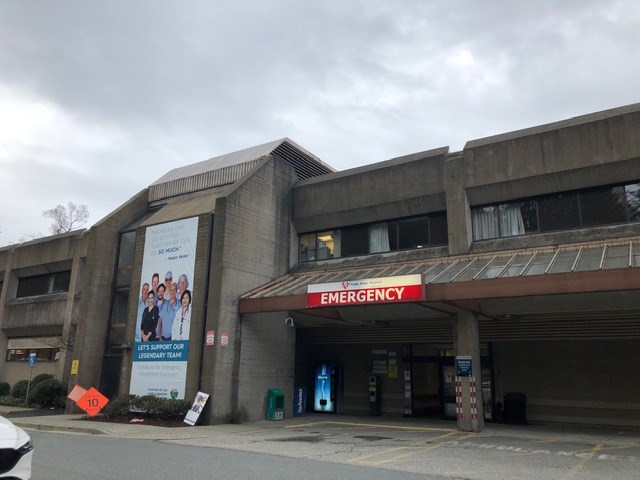It’s the calm before a possible storm at Eagle Ridge Hospital (ERH) as elective surgeries have been cancelled, freeing up almost half of the hospital’s 168 beds.
With an annual caseload of 50,000 medical emergencies, 600,000 lab tests and 6,000 surgeries, the Port Moody hospital is a lifeline for Tri-City residents
But for the next few weeks, in addition to providing help for sick Tri-City residents, ERH is going to play a crucial part in B.C..’s COVID-19 emergency response plan.
As B.C. rolls out its COVID-19 plan of attack against the coronavirus, ERH will be stepping up to provide critical care for ill patients, such as those suffering from stroke, heart attack or other severe illness, as well as COVID-19 patients if a surge in coronavirus cases occurs over the next few weeks.
While Royal Columbian Hospital has been designated as one of 19 B.C. hospitals to care for COVID-19 patients who need specialized care and equipment, such as ventilators, ERH will play an equally important role in B.C.s response plan, according to Fraser Health CEO Dr. Victoria Lee, who spoke to The Tri-City News this week.
“We need to maintain our current services we have that are essential for people that are dealing with heart attack, stroke or other serious illnesses, we need to have space for those people,” Lee said.
Here are 6 things to know about how ERH fits into the big picture.
1. In line with Health Minister Adrian Dix’s plan to free up more than 4,000 beds to deal with a possible surge in COVID-19 cases should a worst-case scenario emerge, ERH is now at between 50% and 60% capacity, according to Lee, so it can handle an influx should COVID-19 numbers grow.
2. The hospital is in the midst of $27.6-million expansion that will more than double the number of patient treatment spaces in the emergency department from 19 to 39. Construction is expected to be complete in late 2020 and work is continuing, following the recommendations on physical distancing and other measures to protect workers, according to Fraser Health.
3. People with mild COVID-19 illness who show up in ERH’s emergency room will be asked to self-isolate for a minimum of 10 days while they get over their symptoms while those who are acutely ill with COVID-19 and need the specialized care and equipment at RCH will be taken there by hospital transport or ambulance, depending on the severity of the illness. Those receiving COVID-19 tests will continue to be people with severe COVID-19 illness, those who are part of a cluster that is being investigated or health care workers and long-term care workers. Although numbers of Tri-City residents who have been tested is not available, Fraser Health has conducted 12,000 COVID-19 tests, according to Lee.
4. There currently aren't many COVID-19 patients in the system, Lee said. However, “we have prepared all of our hospitals if the need arises.” Other than elective surgeries that have been postponed, services atERH) are the same as pre-COVID-19. For a full list of ERH services, visit here.
5. Lee didn’t say how much personal protective equipment ERH has stockpiled but did say she appreciates the efforts of the Eagle Ridge Hospital Foundation to work with supporters to get 15,000 masks for hospital workers. "Are we going to need it? That would depend how the next two weeks look.” The province, meanwhile, has recently received one million face masks.
6. Parking at all hospital sites, including ERH, is free during the COVID-19 pandemic.
For more COVID-19 stories, visit here.



